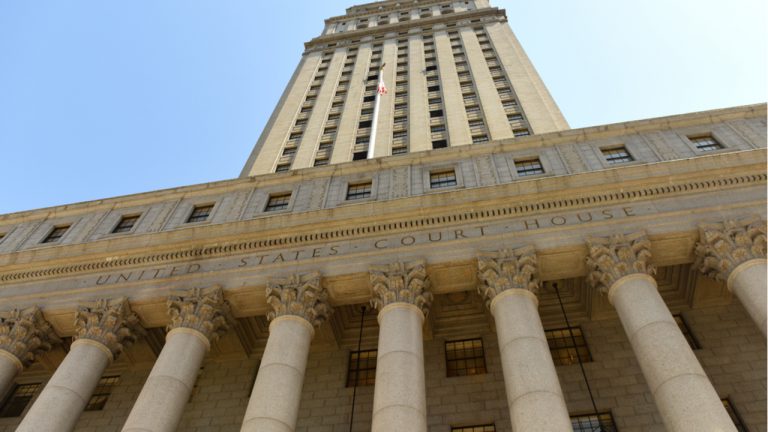Federal Court Rejects Motion Filed by Crypto Developer Virgil Griffith to Dismiss Charges on Aiding North Korea

A U.S. federal judge has rejected a motion filed by a former Ethereum Foundation developer over allegations of assisting North Korea to bypass sanctions. Prosecutors claim, Virgil Griffith, aided the regime by providing critical information on cryptocurrencies.
Prosecutors Say Griffith’s Speech Was About the Use of Cryptos to Circumvent Sanctions
Per Law360, a jury is now set to determine if Griffith violated the International Emergency Economic Powers Act by giving a speech at the Pyongyang Blockchain and Cryptocurrency Conference in 2019.
Kevin Castel, a U.S. District Judge, denied Griffith’s motion because the “short and vague” four-page indictment lacked specific details of his alleged criminal actions. He further commented on the matter:
Examining the indictment in light of the parties’ arguments, the court concludes that it provides adequate notice of the charges against Griffith sufficient to enable him to prepare for trial and, if it becomes necessary, plead double jeopardy as a defense. Further, upon review of the law governing the offense conduct, the indictment states a federal crime and violates no constitutional prohibition.
Prosecutors accused the former Ethereum Foundation developer of giving a speech in Pyongyang about the use of cryptocurrencies to get around U.S. economic sanctions.
Griffith was arrested on Thanksgiving Day in 2019. However, on December 30, 2019, he was granted bail by U.S. District Judge Vernon Broderick.
Many crypto supporters stood up for Griffith’s cause when he was arrested, and influencers like John McAfee called the U.S. government “corrupt at the core.”
Griffith didn’t receive permission from the U.S. Department of Justice to travel to South Korea for the conference. However, per court documents, he got the approval of the North Korean United Nations (UN) Mission in Manhattan and was granted a visa.
Griffith Claims His Speech Was Based on Publicly-Available Information About Blockchain
The Ethereum proponent alleges he gave very basic information about blockchain to about 100 North Koreans who attended his speech. Also, he adds that everything said in his participation is publicly available on the internet. However, prosecutors believe North Korea could use his speech’s content to launder money and bypass sanctions potentially.
Also, the court revealed a message sent by Griffith to colleagues in 2018 before his speech, which reads as follow:
We’d love to make an Ethereum trip to the DPRK and set up an Ethereum node … It’ll help them circumvent the current sanctions on them.
But the former blockchain developer claimed in his rejected motion that such speech was protected by the First Amendment freedom of speech.
As of press time, the court date for Griffith’s case is still set for September 2021.
What do you think about this federal judge’s decision? Let us know in the comments section below.



